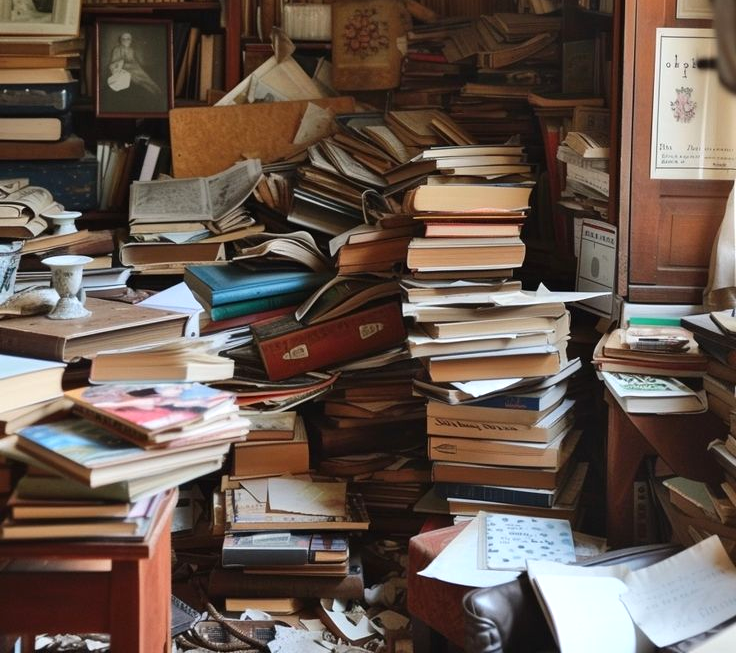Clear Space, Clear Mind: How Clutter Affects Mental Health
- Leila Triffit

- Sep 2, 2025
- 3 min read
Have you ever walked into a room full of clutter and immediately felt stressed? Piles of paperwork, overflowing shelves, laundry piles stacked high - they all take up more than just physical space. They weigh on your mind too.
Our homes are meant to be our sanctuaries - a place of calm, comfort and balance. Yet when clutter builds up, it can turn our homes into just the opposite; an extension of our daily anxieties leaving us restless, distracted, and even overwhelmed. And it’s not just a feeling. Research shows that clutter can have measurable, real-world effects on our stress levels and mental health.
The Psychology of Clutter
In the US, a UCLA study found that people who described their homes as cluttered or full of unfinished projects had higher levels of cortisol (the body’s primary stress hormone), while Neuroscientists at Princeton University discovered that clutter competes for our attention, making it harder to focus and process information.
Meanwhile, in a UK-wide survey by Joseph Joseph and Opinium, two-thirds of respondents said clutter ramped up their stress, while nearly three-quarters said a tidy home helped them focus better. What's more, another study by Currys found that cleaning doubles as self-care - almost 90% of people said a clean home improved their mood.
If you think about it, it seems obvious that clutter and mental health would be linked. If you’ve ever sat down to work or relax but found yourself distracted by the mess around you, it makes sense that your brain would struggle to filter out the visual “noise’’.
Clutter has also been linked to procrastination and avoidance. A study in Current Psychology showed that messy environments often encourage us to put things off - which only adds to stress in the long run.
Minimalism as a Path to Calm
Minimalism is often misunderstood as stark, empty rooms. In reality, it’s about living with intention: keeping what adds value to your life and letting go of what doesn’t.
Psychologists who study “voluntary simplicity” lifestyles have found they’re linked with better wellbeing and greater life satisfaction. By choosing less, people often gain a stronger sense of freedom and control.
In practice, minimalism creates breathing room - both in your home and in your head. A calmer space encourages calmer routines, better sleep, and more focus. It’s not about deprivation, it’s about balance.
Practical Steps to Declutter Without Feeling Overwhelmed
You don’t need to transform your whole house overnight. Small, consistent actions are often more effective:
Start small: Try a 10-minute tidy each day or focus on one drawer or surface at a time.
Prioritise key spaces: Declutter the places where calm matters most first - your bedroom, living room or kitchen first.
Try the “one in, one out” rule: Every time something new comes into your home, let one item go.
Ask yourself: Does this item serve a purpose to me now, or could it be weighing me down?
The act of tidying itself can be uplifting. Research published in Personality and Social Psychology Bulletin suggests that completing small, structured tasks boosts mood and creates a sense of control.
The Home as a Sanctuary
Decluttering isn’t just about the way your home looks - it can make your home safer and more functional too. Clear floors reduce trip hazards, well-planned storage makes daily life easier, and calmer spaces support relaxation.
If you think of your home as a sanctuary, it becomes clear why a clutter-free space is so powerful: it doesn’t just look better, it feels better.
Conclusion: Living Lighter
A cluttered home can leave you feeling stressed, distracted, and out of balance. But a simpler, more intentional space can restore calm, focus, and wellbeing. By clearing space in your home, you’re also clearing space in your mind and permitting yourself the conditions for better mental health and a lighter, more balanced life.





Comments